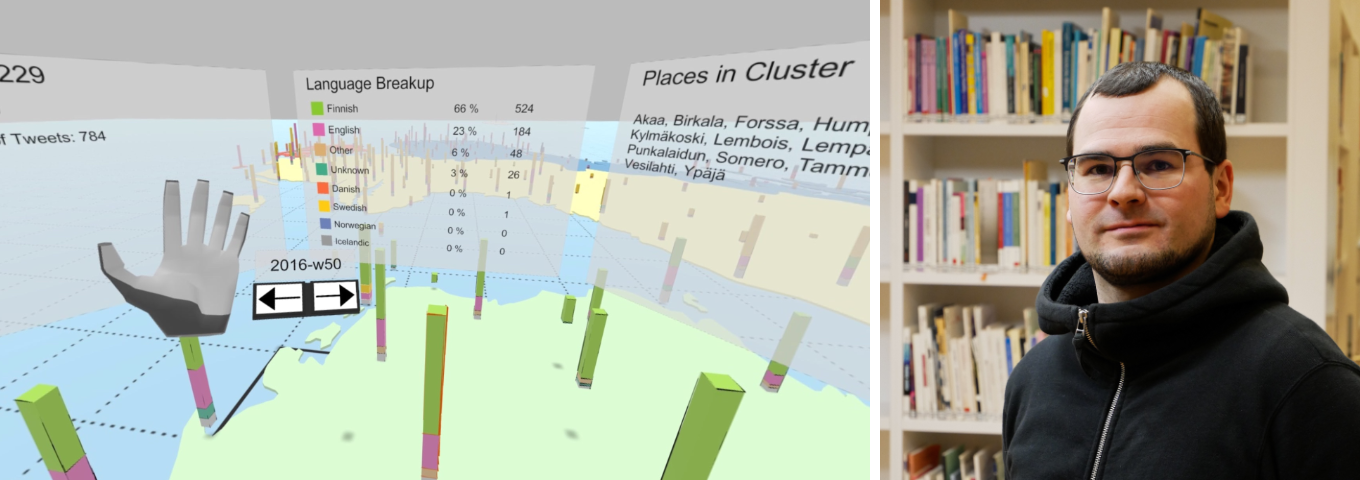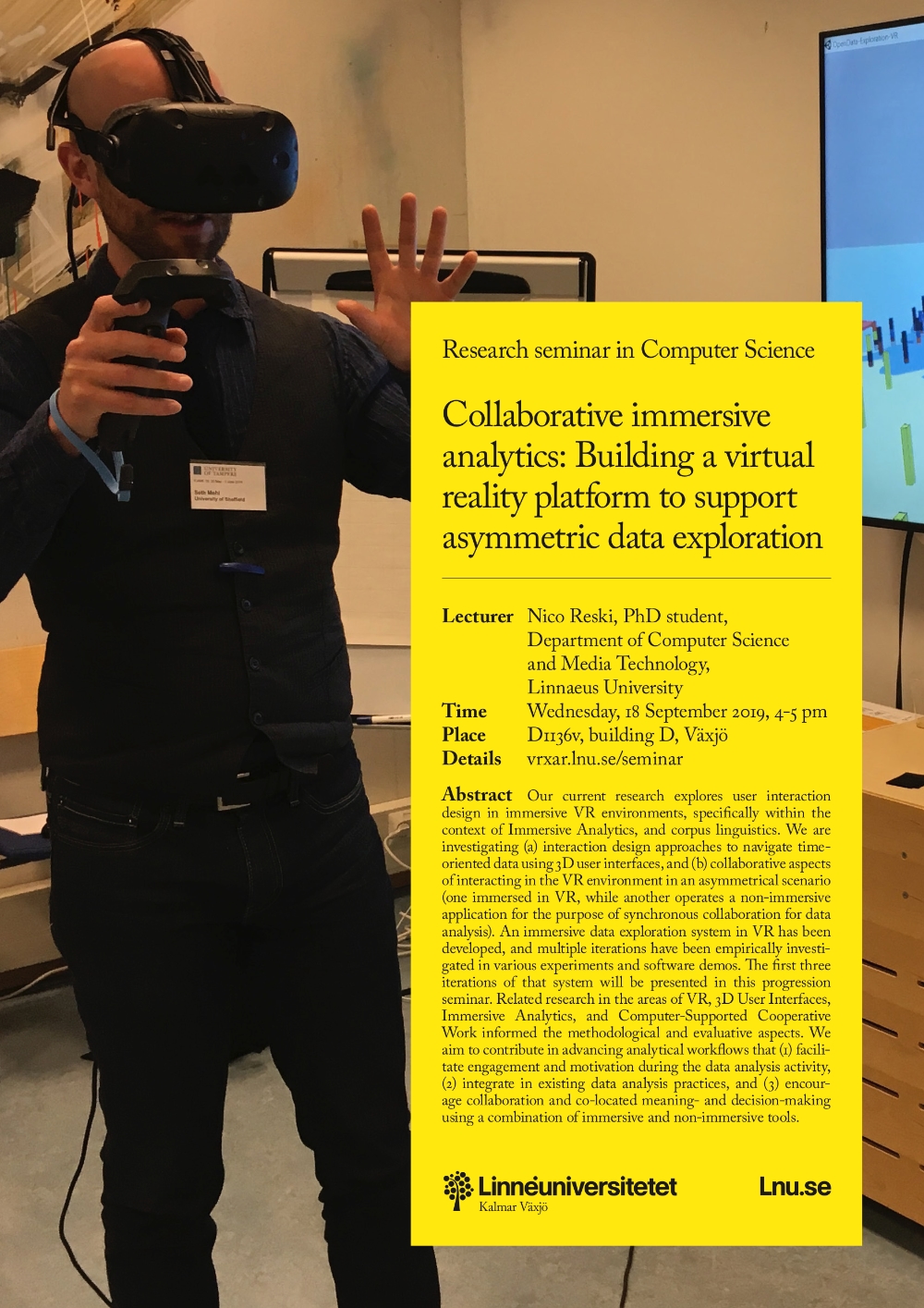
Progression seminar (PhD) - 18.09.2019
Collaborative immersive analytics: Building a virtual reality platform to support asymmetric data exploration
In a nutshell
| What: | Progression seminar in Computer and Information Science (PhD), Linnaeus University |
| Why: | To present and review the progress of the student's doctoral research |
| How: | Presentation (~45 min), Q&A (~15 min) |
| Who: | PhD Student: Nico Reski |
| PhD Supervision: Dr. Aris Alissandrakis, Prof. Andreas Kerren | |
| PhD Examination: Dr. Morgan Ericsson | |
| When: | Wednesday, September 18th, 2019, 16:00 |
| Where: | Room D1136V, D-building, Campus Växjö, Linnaeus University |
In detail
Within the scope of his research to acquire a doctoral degree, Nico Reski, member of the VRxAR Labs research group and associated with the Department of Computer Science and Media Technology (CM) at Linnaeus University, is going to hold a progression seminar. As Nico is half way into his studies, this progression seminar is intended to publicly present his research so far, describing research focus and objectives, elaborating on the methodology, and informing about the developed virtual reality prototypes as well as the conducted user interaction studies. The seminar provides opportunities for important feedback, comments, and directions for the second half of his doctoral studies.
Everyone is welcome to attend, and engage in discussion about immersive technologies!
Title | Abstract
Collaborative immersive analytics: Building a virtual reality platform to support asymmetric data exploration
The presented research aims to explore user interaction design in immersive virtual reality (VR) environments using head-mounted displays, specifically within the context of Immersive Analytics, and, at this stage, corpus linguistics. Two main parts of the research are concerned with (1) investigating interaction design approaches to navigate time-oriented data using 3D user interfaces, and (2) collaborative aspects of interacting in the VR environment in an asymmetrical scenario, where one collaborator is immersed in VR, while another operates a non-immersive application for the purpose of synchronous collaboration for data analysis. An immersive data exploration system in VR has been developed, and multiple iterations have been empirically investigated in various experiments and software demonstrations. Research in the areas of VR, 3D User Interfaces, Immersive Analytics, and Computer-Supported Cooperative Work informed the conducted research in regards to methodological and evaluative aspects. The research aims to contribute in advancing analytical workflows that (1) facilitate engagement and motivation during the data analysis activity, (2) integrate in existing data analysis practices, and (3) encourage collaboration and co-located meaning- and decision-making through data analysts using both immersive and non-immersive tools. Additionally, the research aims to contribute to the emerging field of Immersive Analytics through the investigation of (4) novel interaction approaches to navigate time-oriented data within the immersive 3D space, and (5) features that support and facilitate collaboration using a mixture of (new) immersive and (existing) non-immersive tools. The progression seminar informs about the current state of the conducted research by presenting the first three iterations of the developed immersive data analysis system.
Resources
- Download: [Seminar white paper (pdf; 4 MB)]
- Download: [Seminar poster (pdf; 0.7 MB)]
- Virtual Reality Demo Reel VT17 - VT19: [Vimeo / LNU Play]
- Event impressions: [Twitter]
Poster
